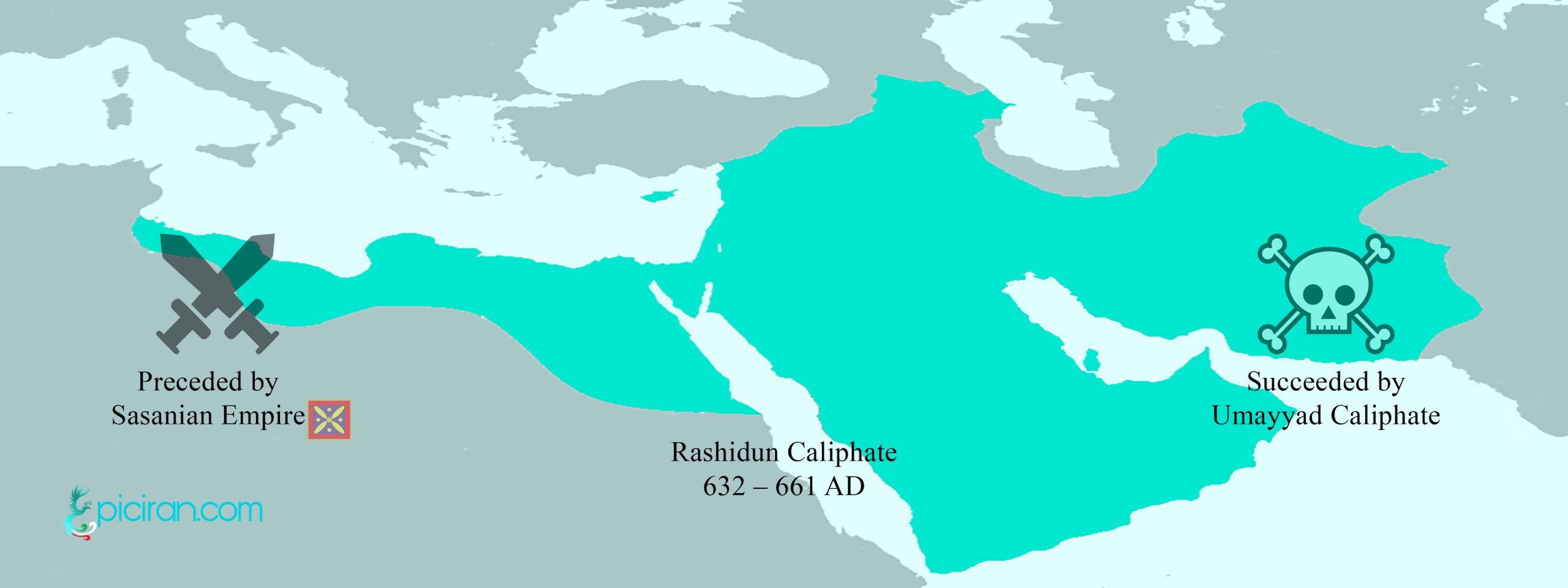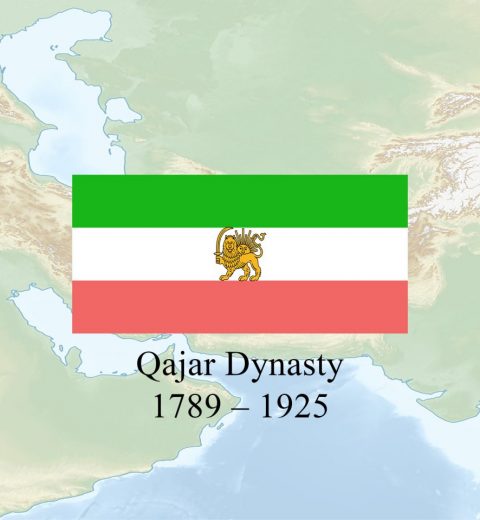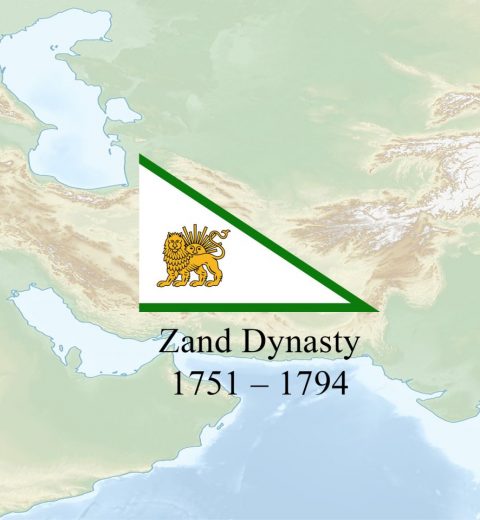Class divisions and severe repression of dissent and corruption and long-term wars with the Roman Empire have weakened the Sasanian empire, these reasons which could be among the reasons for Iranian acceptance of Islam. On the other hand, the rapid and successive attacks of the Muslims, which the Prophet promised to overcome the Sasanian empire and Roman empires, gave Muslims the motivation to conquer both empires.
The Rashidun caliphate
These factors and others, such as the acquisition of trophies, motivate Umar to send several Muslim commanders like Khalid ibn al-Walid to defeat the Iranian armies, in the first war between the Iranians and the armies of Rashidun caliphate, known as the campaign of Dhatas Salasil, which concluded regions of the province Basra fell to the Arabs. In the next war, the Iranian armies were defeated, and as a result, al-Hirah fell to the hands of the armies of Rashidun caliphate, and the people of this city made peace with the Muslims.
In the following year, another war was occurred in the name of Pol, which was the first war that Persians defeated the armies of Rashidun caliphate, but could not benefit from this victory because of intense debate among the Sasanian commanders. Battle of al-Qadisiyyah was the most important war between Iranian and the armies of Rashidun caliphate, in which the Sasanian armies defeated again and the Ctesiphon fell into the hands of the Muslims, the ultimate battle that led to the Arabs entering the Iranian plateau was the Nahavand battle, the last Iranian Resistance against the armies of Rashidun caliphate was in this war, after the defeat of Iranians In this war, Yazdgerd III escaped to Merv and was killed there.
All of these events occurred during the period of the second Caliph of Rashidun, Umar. After the caliphate of Osman, people in some Iranian cities, such as the Istakhr, Ardashir-Khwarrah, and Darabgerd, set rebellions against armies of Rashidun caliphate but did not lead to the conclusion. One of the reasons that the Iranians accepted Islam was the advice of Islam to improve social status and justice, but with the beginning of the caliphate of the Umayyad dynasty. This dynasty humiliate non-Arabs and it was contrary to Islamic pieces of advice and many uprisings were the result of these actions. Another important incident was the prevalence of racism.
Umayyad Caliphate
The most important uprisings of this period were the Abu Muslims revolt in great Khorasan. Abu Muslim, take advantage of the Iranian anti-Ummah’s feelings and arranged a rebellion to capture the kingdom of Khorasan and rule over Khorasan. He also prepared army units sent to Nahavand to stand against the Umayyad armies. The Umayyad armies were defeated and were extinct in a war between the Khorasan and Marwan I corps (the last Umayyad Caliphate) in northern Iraq.
Abbasid Caliphate
After that, the Abbasids came to the succession. This dynasty was founded by Abbas ibn Abdul-Muttalib prophet Muhammad’s uncle. After the death of Harun al-Rashid fifth caliph of this dynasty, his sons, al-Ma’mun, and al-Amin, fought for the caliphate, al-Amin was killed by the Iranian commander Tahir, because of his assistance al-Ma’mun announce him as warden of Khorasan.




